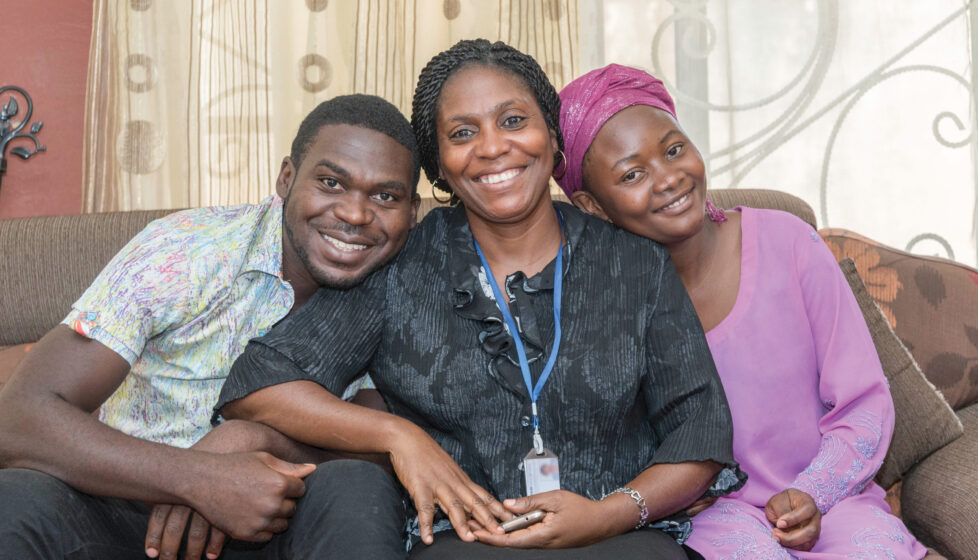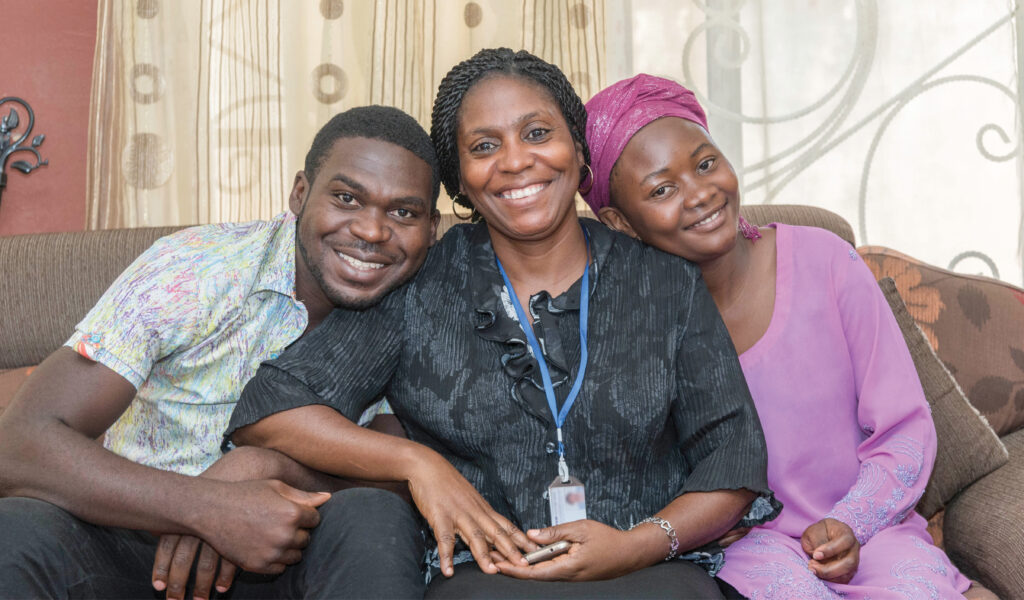Fulani Woman Finds Christ, Husband Demands Divorce
Nigeria

Aisha Granger is not your typical seminary student. She’s 43, a divorced mother of two children, and she’s Fulani, a member of the predominantly Muslim nomadic tribe spread across West Africa. Her journey started with a desire to learn.
“I really wanted to go to school,” Aisha said, “but growing up in a Muslim environment as a Muslim girl, your orientation is toward growing up and being a good Muslim, a good mother.”
Aisha followed cultural norms by marrying at age 18 and giving birth to her first child a year later. As a young woman, she studied at the College of Islamic Studies in Bauchi state and became a state representative for the Federation of Muslim Women. She even converted her living room into a mosque where women could pray, since Islam does not allow women to mix with men for prayer at the community mosque.

“I used to be a very fanatical Muslim,” she said. “We were taught that Christians are infidels and we should not befriend them; we should not listen to them because they are not worshipers of Allah. We were always encouraged to stay away from Christians because they will make us turn away from our faith.”
Then she heard God speak.
When Aisha was in her 20s, she suffered from debilitating migraine headaches. She tried all the remedies offered by traditional healers, but nothing helped. As a last resort, she was told to recite a Quranic passage four times before slaughtering four rams. If that did not work, the healers said, she would die. When the sacrifice failed to help, Aisha concluded that she was about to die. In desperation, she decided to perform one last prayer, so she went to the bathroom to perform her ritual washing.
Before she could complete this final work, however, she dropped to the floor. Aisha sensed a voice saying, “I want you to worship Me.” She knew enough about the Christian faith to realize this still small voice had to be the God of the Bible, who interacts on a personal level.
The supernatural encounter sent Aisha on a four-year search. She gradually stepped away from the leadership positions she held in Islamic women’s groups and began spending a lot of time in her living room seeking God. Although she knew how much she stood to lose if she chose the infidels’ God over the religion of her people, she could see that Jesus Christ offered something different.

“I had never heard of salvation before in Islam,” she said. “There’s nothing like that. Your salvation is only by your good deeds. Even then, Allah will decide whether you go to paradise or not. There is no assurance.”
As she studied the Bible and attended church, Aisha discovered that Jesus Christ had already accomplished everything necessary for her salvation on the cross. She simply needed to place her faith in His righteousness to gain freedom from the curse of the law. Soon, Aisha was ready to tell her husband about her new faith.
It didn’t go well — her husband sued her in Sharia (Islamic) court, demanding all her possessions and both of their children. While both civil and criminal matters are decided by Sharia courts in nine northern Nigerian states, Aisha’s pastor, doctor and several others advocated for the case to be transferred to the magistrate court, and it was. “If the case had gone through Sharia court,” a VOM worker said, “they probably would have ruled against her and she would have lost her children.”
The magistrate gave Aisha the choice of recanting her Christian faith or divorcing her husband. And since she would not give up her faith, her husband divorced her and relinquished custody of the children to her.
Aisha and her son moved out, but her daughter chose to stay with her father. It was a difficult time for Aisha, as even other Christians didn’t want to associate with her. They were afraid they would be accused by her husband of playing a part in her conversion, and they also feared that the Muslim community might turn against them if they were seen with her. “If you are a Muslim and you come out of Islam, you are to be stoned to death,” she said.
In addition, Aisha’s parents accused her of neglecting their needs by leaving her influential husband and his money. “They insulted me, said all kinds of things to me,” she recalled. “They were in support of him.”
She endured continual pressure from her family and the community, and her ex-husband even burned down her house. The persecution became too difficult for her teenage son, Abdullahi, who soon moved back in with his father. Aisha was ready to give up, even contemplating suicide. “I wanted to just pack up and leave the town,” she told a VOM worker. “That was when you people came into my life.”
VOM arranged for Aisha to move to another neighborhood, where the community would not know she had left Islam. “I moved into this house with a lot of fear and tension,” she said. But the tension gradually eased, and Abdullahi, who had accepted Christ through his mother’s influence, came back to live with her in the new house. Without a safe place to live, Aisha fears he would have returned to Islam. Aisha’s daughter, Faiza, who remained with her father, was introduced to Jesus Christ through friends at school. After Faiza placed her faith in Christ, her father beat her and told her, “Leave my house before I kill you.” Faiza now lives with her mother and brother.
Aisha is attending seminary so she will have a firm theological foundation from which to teach others. She hopes to work with other women who have left Islam and to reach out to the Fulani with the love of Christ.
Aisha lives with the stress of knowing that her ex-husband and his family are still searching for her to kill her. She receives regular text messages exhorting her to return to Islam or threatening to kill her. Yet despite the difficulties and uncertainty, she has no regrets. Coming to know the living God has given her whole life purpose. “God created us to be His followers,” she said, “to be worshiping Him and being obedient to Him.”


 Guide
Guide